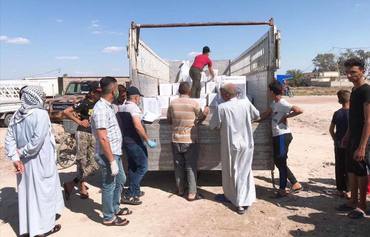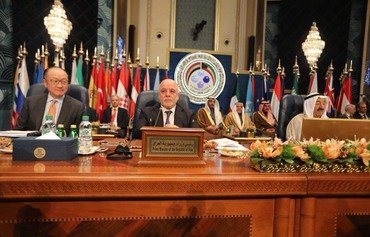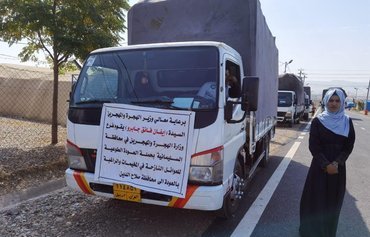A government committee tasked with returning internally displaced persons (IDPs) to their areas of origin has so far succeeded in sending 2.5 million Iraqis home, officials told Diyaruna.
This is nearly half the number of those forced to flee since mid 2014, when the "Islamic State of Iraq and Syria" (ISIS) overran large swathes of the country.
Over the past three years, ISIS has caused the displacement of 5.4 million Iraqis, the UN reported on October 11th.
Tackling displacement is one of the government’s top priorities, according to Muthir Mohammed Saleh, economic advisor to Prime Minister Haider al-Abbadi.
To date, he told Diyaruna, the government has succeeded in returning 2.5 million IDPs to their homes, and a high level committee has been tasked with providing basic services for their resettlement.
The process of return "is the first step of the comprehensive government plan and vision to rehabilitate all the cities affected by terrorism", Saleh said.
The committee has been working with local authorities to restore electricity and provide drinking water, food rations, education and healthcare services in order to create an environment conducive to the resumption of normal life, he added.
The government's reconstruction efforts also will include the rebuilding or repair of damaged infrastructure such as bridges and energy plants, Saleh said.
National and international assistance
A major donor conference in Kuwait to fund Iraq's reconstruction, slated for February 2018, is expected to assist with the costs and challenges of rebuilding areas devastated by ISIS.
"We conducted comprehensive surveys and studies to present to conference participants so they can have a detailed view of the level of damage in our country," Saleh said.
He anticipated a two-tiered approach to contributions from participating countries, with some in the form of grants and loans to Iraq to help shoulder the cost of reconstruction.
Other contributions would take the form of cross-sector investment projects geared towards development that would enable Iraqi citizens to take part in the reconstruction efforts in liberated areas and improve their own situation.
It is very important to support the economies of the liberated cities, economist Majid al-Suwari told Diyaruna.
"Resolving the issue of displacement must be part of significant national efforts that can bring about comprehensive and sustainable development across cities--particularly those affected by terrorism," he said.
Achieving this goal requires focusing on investment and efficient use of material and human resources, he added, as well as fighting all forms of corruption and building an effective management system.
'We are making progress'
The Ministry of Displacement and Migration has been working to encourage displaced persons to return voluntarily to the liberated areas, said Sattar Nuruz, the ministry's head of subsidiaries.
"The ministry is collaborating with other ministries to provide all the necessary requirements for their return," he told Diyaruna. "We are working on getting IDPs out of camps and taking them back to their homes."
"We are making progress," he added, noting that returning families are being provided with food rations and basic household products.
"The number of returnees is reassuringly high and rapidly increasing," he said.
In Ninawa province, more than 300,000 out of one million displaced persons have returned to their homes since the end of 2016.
Eastern Mosul, south-eastern Ninawa province and Tal Afar have seen the largest numbers of returning residents, Nuruz said.

![Displaced families from Ninawa province prepare to leave the camps where they sought refuge from the 'Islamic State of Iraq and Syria' and return to their homes. [Photo from the Iraqi Ministry of Displacement and Migration Facebook page]](/cnmi_di/images/2017/12/06/10595-Iraq-Ninawa-displacement-600_384.jpg)






